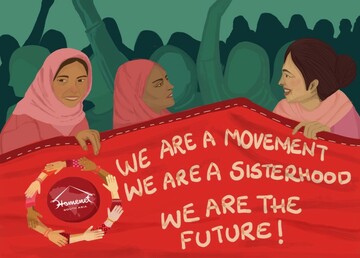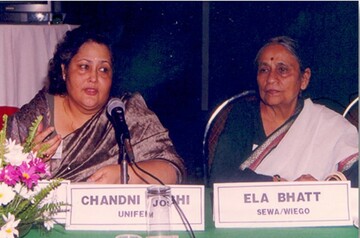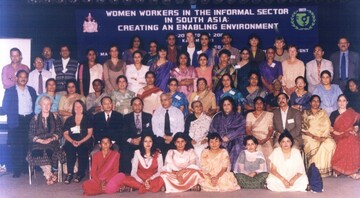Who We Are

About Us
HomeNet South Asia is a regional network of home-based worker organisations spread across eight countries. These include Afghanistan, Bangladesh, Bhutan, India, Maldives, Nepal, Pakistan, and Sri Lanka. Founded in 2000, we are South Asia’s first and only network for home-based workers.
Through our initiatives and efforts, we aim to:
- Build regional solidarity among home-based workers and their representative organisations. We also create platforms for learning and sharing amongst them.
- Advocate for relevant policies that include home-based workers in national statistics, Government programmes, and ensure worker's rights.
- Ensure visibility of home-based workers by strengthening their collective voice.
- Create better economic opportunities.
- Secure social security.
- Develop the capacities of grassroot-level organisations.
In the years since our inception, we have emerged as a leading voice for home-based workers in the region. Our initiatives, in our member countries, empower women, home-based workers and help them improve their lives and livelihoods.


























